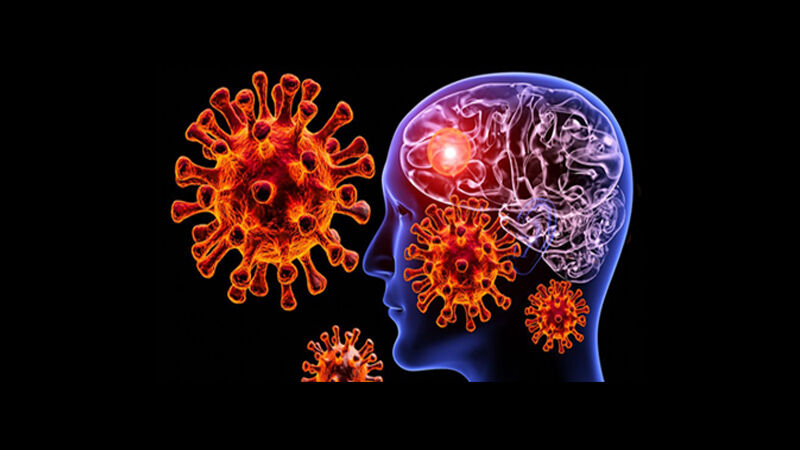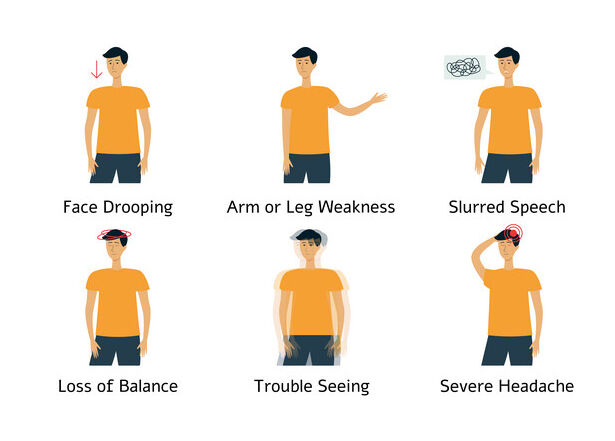
COVID-19 & Brain Stroke
Recent studies show that people with severe cases of COVID-19 are more likely to have a stroke, compared to people who have milder symptoms. There have been several reports about a potential link between stroke and COVID-19, especially in younger people.
Due to severe inflammatory reactions inside the body as a part of COVID-19 infections, there is inflammation of the blood vessels carrying blood to different parts of the brain and nervous system. This condition is called vasculitis. There is also an increased tendency of clotting within the blood. All these combined increases the risk of blockage or bleed inside the brain leading to a Stroke.
Types of stroke seen in COVID-19 patients:
Haemorrhagic stroke – rupture of a vessel resulting in accumulation of blood within the brain.
Ischemic stroke – blockage of a blood vessel due to lack of oxygen leading to brain stroke.
CVT (Cerebral Venous Sinus Thrombosis) – blockage of veins in the brain leading to brain damage.
The risk of contracting COVID-19 should not delay life-saving and time-dependent stroke treatment. Stroke is a catastrophic neurological disorder with high mortality and morbidity. Almost 20% of people with stroke die within one month of having a stroke. Another 60% suffer varying degrees of disabilities for the rest of their life.
Symptoms of Stroke to look out for:

The major signs and symptoms of stroke, all of which come on suddenly:
- Numbness or weakness in the face, arm, or leg, especially on one side of the body
- Confusion, difficulty speaking, or understanding speech
- Difficulty seeing from one or both eyes, dizziness, loss of balance or coordination
- Severe headache
Moreover, acting F.A.S.T. can help an individual having a stroke get the treatment they require as soon as possible.

F – Face: Ask the person to smile and check if their face droops to one side.
A-Arms: Ask the person to lift both arms and check if one arm drifts downward.
S – Speech: Ask the person to repeat a simple phrase and listen for slurring or difficulties.
T – Time: Save time and act promptly by contacting emergency services immediately.
Things Stroke survivors need to do to prevent another stroke in this pandemic:
It is advisable to take medications for blood pressure, diabetes, high cholesterol, and blood thinners regularly. Those who are on OAC (Oral Anticoagulants) need to do regular monitoring of INR and continue physiotherapy from home.
Treatment of Stroke during COVID:
The stroke treatment in COVID time becomes more difficult as COVID -19 has already astounded the healthcare system and further delays can happen as all the COVID-designated hospitals might not be Stroke ready. GNRC Hospital is the first and best premier super specialty hospital in the Northeast ready to handle any kind of stroke. With a designated separate Neuroscience Department, the expert team of Neurologists, Neurosurgeons & the only Interventional Radiologist of the north-eastern region, GNRC has been able to set new dimensions in the treatment of stroke.
Time is Brain.
Early treatment can help prevent the disability whereas every one-second delay in treatment can lead to 30,000 brain cell deaths. If you experience any symptoms of Stroke do not wait at home & reach out to a stroke-ready- hospital immediately.
Dial 18003450011 for Free Ambulance to GNRC
